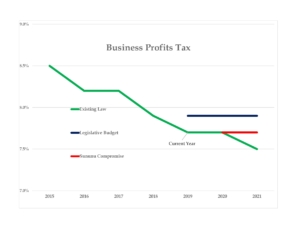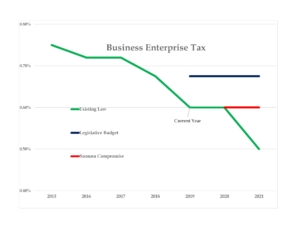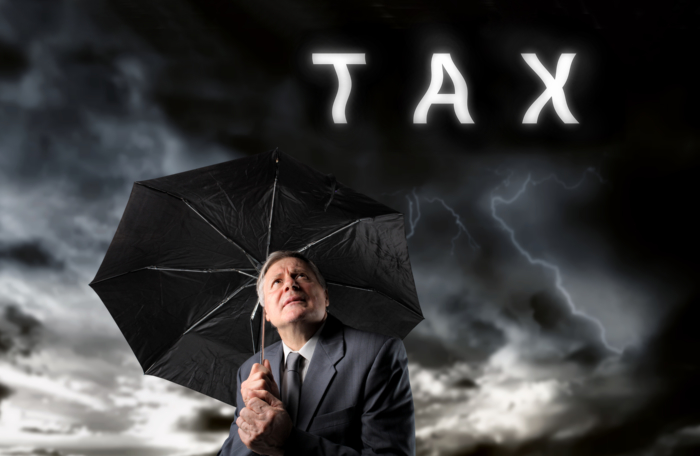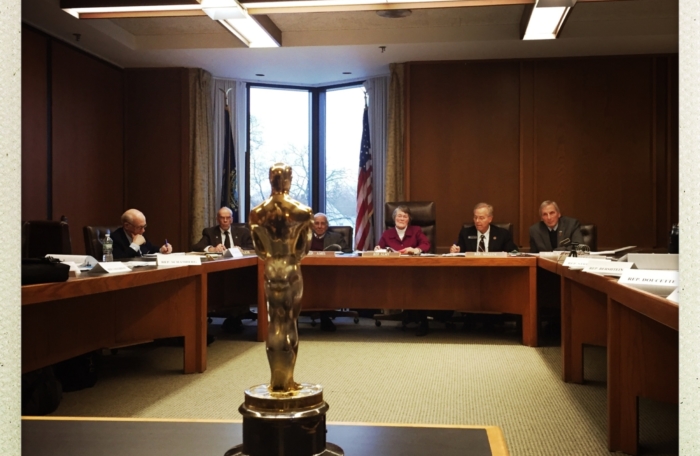In the last legislative session, this newsletter warned about the dangerous precedent legislators would set if they passed a tax incentive package tailored for a specific industry, in this case a single company, Manchester’s Advanced Regenerative Manufacturing Institute (ARMI). New Hampshire doesn’t do industrial tax incentives, we warned, and if the state starts, other industries will come, hat in hand, to explain how their critically important industry deserves special tax treatment too.
Behold, on Wednesday, before the House Ways and Means Committee, Rep. Tim Lang, R-Sanbornton, presented his bill (House Bill 234) to create a film industry tax credit. To sell it, he noted that it was based on the ARMI bill.
“The wording is almost identical to the regenerative tissue bill,” he said.
That taxpayer giveaways for the $43 billion (in revenue alone) Hollywood film industry is the first successor to the ARMI subsidies is a perfect illustration of the bonkers nature of state industrial incentives.
As if to emphasize that point, Oscar himself came to ask for a handout.
Oscar is made of bronze and plated with gold. And he wants a subsidy.
Preceding Oscar were a few people who had been connected to the film industry at some point in their careers. They mentioned the generous tax credits other states offer. They dropped names of celebrities they had encountered. Then, just as in a movie, a tall, handsome man dressed in black, with flowing silver hair, who spoke with the unmistakable timber of an actor’s voice, stepped up to make an unexpected presentation.
He reached into his black backpack, withdrew its hidden passenger, and placed the well-worn statuette on the desk before him.
The sounds of soft gasps and impressed whispers floated through the air.
The man was Ernest Thompson, author of New Hampshire’s single greatest claim to Hollywood fame, “On Golden Pond.” In 1982, that screenplay won Thompson a Golden Globe and the lifelong companionship of the little golden man who accompanied him to Concord on a cloudy Wednesday tucked into the dark hollows of a nondescript hiker’s backpack.
Charming and captivating, Thompson regaled the committee with tales of Hollywood glory, all of which could be New Hampshire’s again if only the state would subsidize film production.
Production executives tell him, he said, that they won’t film the sequel to “On Golden Pond” in New Hampshire because Massachusetts offers incentives and New Hampshire doesn’t.
All the while, Oscar glowed in silent, golden testimony of his own.
In a movie, this would’ve been the rousing scene, with soaring music and a closeup of someone brushing away a tear, that preceded a unanimous vote to pass the bill, thus validating the hero’s journey and confirming the value of “investing” in “the arts.”
But Concord is a practical, not a dramatic, place. Instead of cheers and tears, there was only the voice of the committee chair as she interrupted the tales of celebrities gracing New Hampshire’s hills and valleys, cut off the testimony, and firmly braved the cold, golden glare of the little bald man on the desk.
In the people’s House, even Oscar has only five minutes to testify, and there was one last witness to call.
That witness was from the Josiah Bartlett Center for Public Policy. Instead of a celebrity, we had data.
Among the points we made to the committee were:
- Massachusetts’ own study of its tax credit program concluded that the credit returns only 14 cents on every dollar spent.
- A North Carolina study of its tax credit program concluded that it returned only 19 cents on the dollar.
It’s not easy following Oscar. But someone had to present the case that an industry that hands out gold-plated statues even to the nerds who make cool spaceship sound effects shouldn’t get taxpayer subsidies.
We presented the only testimony against giving New Hampshire taxpayer money to Hollywood producers. It was Josiah Bartlett vs. Oscar.
Come to think of it, that might make a pretty good movie, provided “Oscar” is a giant bear or an alien or a sinister British commander during the Revolutionary War.
A heroic Josiah Bartlett fighting some powerful enemy would be fine with us, just as long as the movie came with the disclaimer: “No taxpayer dollars were harmed in the making of this film.”











